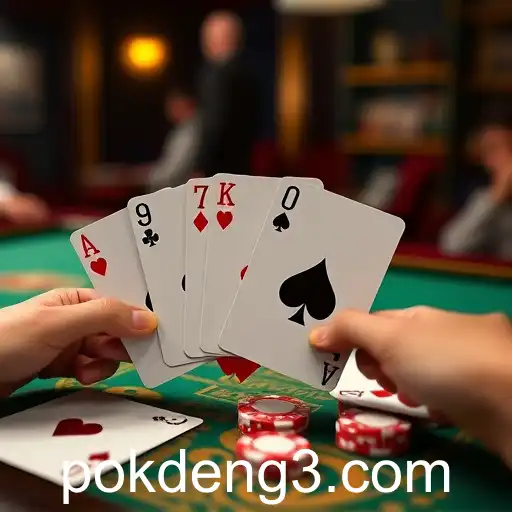
Explore the rise of Pok Deng in Western gaming culture, its impact, and the cultural dynamics it brings.
In recent years, the online gaming landscape has witnessed a fascinating phenomenon with the rise of Pok Deng, a traditional Thai card game, gaining popularity in the West. Known for its simple rules and fast-paced gameplay, Pok Deng has made a significant mark on gaming websites that cater to enthusiasts of card games. As 2025 approaches its close, let's delve into how this game has woven itself into the fabric of Western gaming culture.
Originally played in Thailand, Pok Deng requires players to compete against a dealer to achieve the highest hand value, aiming for a two-card hand close to nine, similar to Baccarat. Its allure lies in its straightforwardness, a welcome trait for Western gamers who often seek quick yet engaging experiences. Several gaming platforms have capitalized on this trend, offering Pok Deng both as a standalone game and as part of larger gaming suites, driving its popularity to new heights.
The surge in interest has not only amplified the presence of Pok Deng but has also sparked broader conversations around cultural exchange within gaming communities. As Western developers integrate more Eastern games into their platforms, players are treated to a rich tapestry of diverse gaming experiences. This exchange extends beyond mere gameplay; it introduces players to new customs, terminologies, and strategies, fostering a deeper appreciation for global gaming cultures.
Despite its rise in popularity, Pok Deng's integration into Western markets is not without challenges. There are discussions around how to maintain the authentic essence of the game while adapting it for a wider audience. Furthermore, developers must navigate cultural sensitivities, ensuring they respect the game's origins while cultivating an inclusive atmosphere for players from various backgrounds.
As the Pok Deng phenomenon continues to unfold in 2025, it's clear that the game's impact stretches beyond mere entertainment. It represents a merging of cultures, challenging developers and players alike to rethink the possibilities within the realm of online gaming. As we look ahead, one can only anticipate how this blend of tradition and innovation will shape the future dynamics of gaming across the globe.




